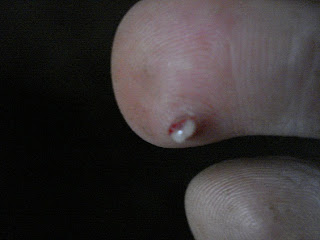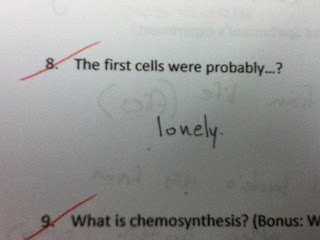I'm back in New York City since last Thursday. A quick recap of my two months in the Congo:
Security
This time in Congo’s South Kivu province I was not under IRC's security umbrella. Given that I've already had my fair share of sleepless nights due to gunfire, have been chased by a mob with sticks and stones, and several other things happened that I don't write about because my mom reads these posts, this was the major concern. In the end it was unnecessary. We had no security incidents whatsoever. What came closest was the use of force from my side on two occasions:
When in Goma, Freddy and I took motorbikes to get to the harbor from where we would leave by boat to Bukavu. The motorbike had to stop for a truck that blocked the road. While waiting a local youth bumped into me rather unnecessarily because it was not crowded. I immediately checked my pockets and noticed that my moleskin notebook was missing. When he noticed I knew, he started running and after a short chase I had my notebook back. Ha! He better had stolen my wallet: the notebook had information from many interviews and was thus many times more valuable to me than my wallet.
When leaving Congo Neelan - as a proper academic - took the hotel room key with him. About two months later I had the same room as Neelan in the hotel. Due to a hole in the backpack I lost the key one day and had the following conversation with the hotel employee:
- Peter: “I lost my key. I'm sorry. Can I have the spare key.”
- Employee: “Because the other white guy took the key with him we don’t have a second key.”
- [Now several minutes of silence and me waiting for more from his side]
- Peter: “So what are you going to do?”
- Employee: “Well we don’t have a key”
- Peter: “I know. But all my stuff is inside and thus we have to solve this”
- [Several minutes of silence and me getting more and more annoyed.]
- Peter: “Ok. I’ll go to the bar next door to read a book and you solve the problem. You have two hours.”
- [On my way out also informed the boss of the hotel of the issue. Then after 2 hours:]
- Peter: “My door is still locked”
- Employee: “Yes. We don’t have the key”
- Peter: “I know. But how are you going to solve that”
- [Several minutes of a blank stare and me getting really annoyed.]
- Peter: “If you don’t open it, I will kick in the door myself.”
- Employee: “Haha. That’s not possible.”
- [A minute later the (oh-so-high quality) door was kicked open and I was in the room.]
Health
Also health-wise things went unexpectedly smooth. Overall I haven't been sick, with the exception of some diarrhea and throwing up the first two weeks when Neelan was still in Congo. Needless to say, I now blame Neelan for me being sick during that period. There is only one type of animal that bothered me twice: those insects that start digging in your foot and leave their eggs. I have had this before (here), and with a little bit of pocket-knive-surgery and disinfecting-with-whisky this was solved quickly (see the picture below).

Nice
Research
Needless to say this was the reason why I went through all the trouble of going to Congo again. And it was worth it! A lot of amazing data has been and is being collected: from lab-in-the-field experiments, village mapping, etc. Data that is central to my dissertation. There is another reason, however, why especially these last two months in the Congo were so important. Let me give an anecdote. Last semester I presented a draft paper at Columbia's comparative politics workshop. In brief, based on data collected for our Tuungane evaluation, the draft has a lot of regressions and empirical results regarding migration. People then correctly asked: “So what do the migrants say?” At that point I had spend over 1.5 years in the Congo, but I could not tell them that. I spent time in the field but never specifically focussed on my dissertation because the time spent in villages was to manage evaluation teams. Another problem was IRC's security rules that make it obligatory to be out of the villages in the early afternoon. Now after two months of sleeping in the villages and talking over and over again with migrants, I now do feel more comfortable answering this question.
Do note that I still have the feeling that there are a million things that I don't understand in the Congo - and this only seems to get worse the more I visit the country.





